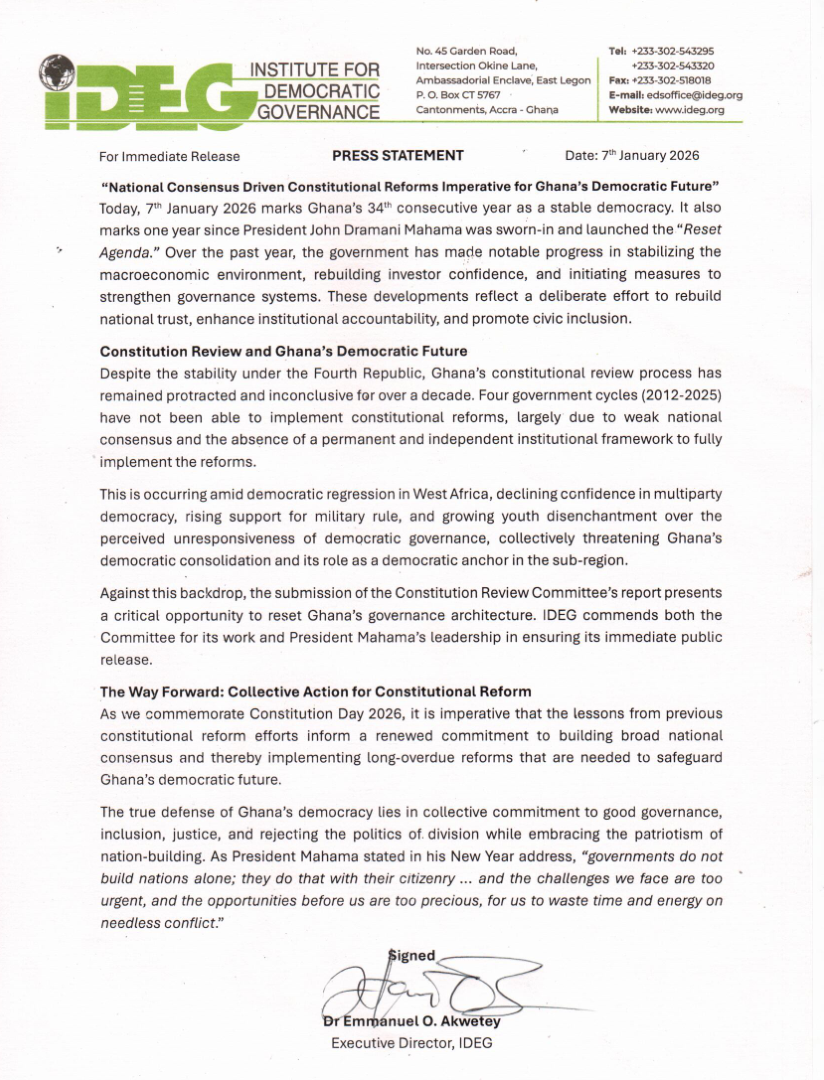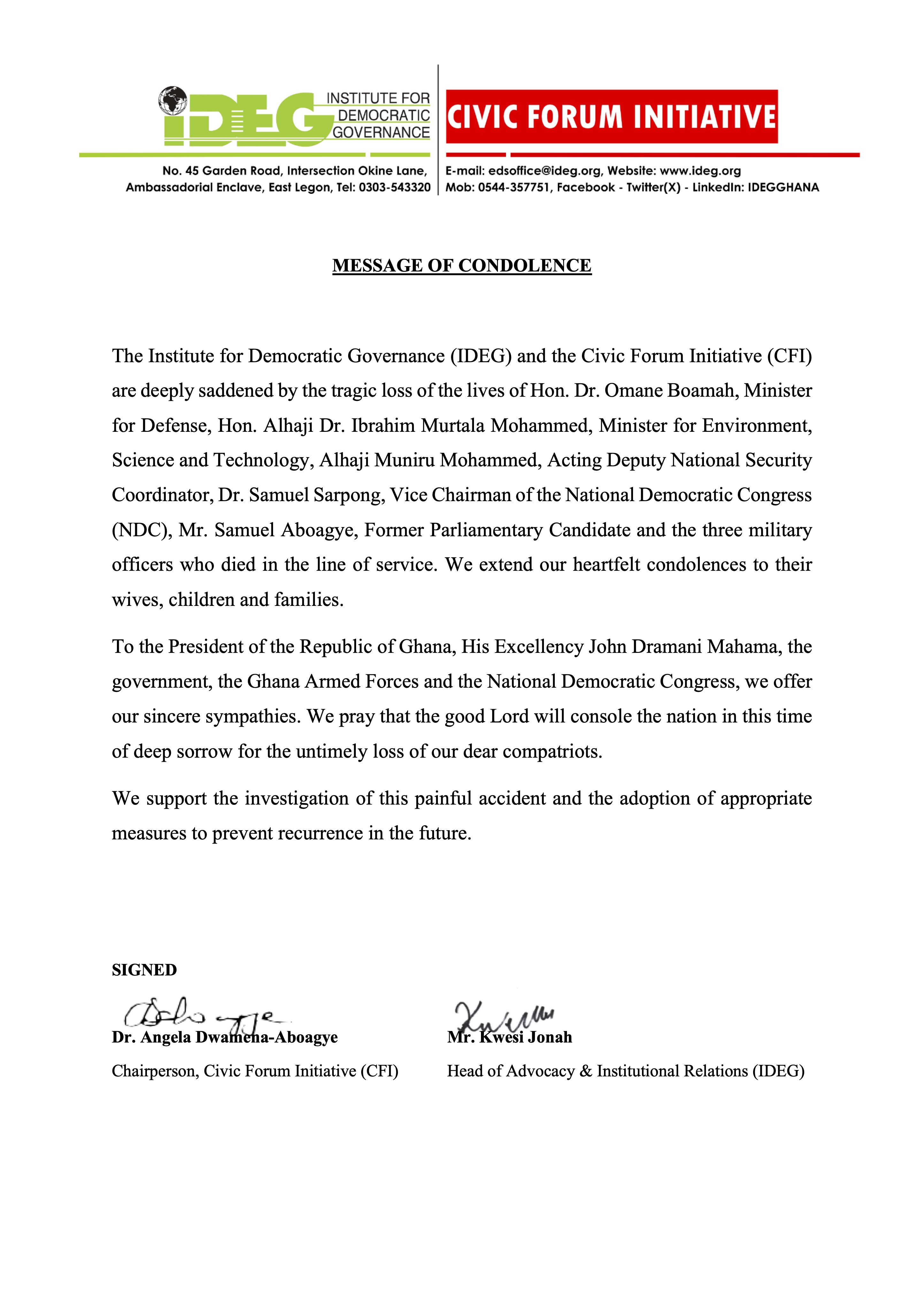DE-MONETIZING ELECTORAL POLITICS, STRENGTHENING ACCOUNTABLE GOVERNANCE: WHICH WAY FORWARD FOR GHANA?
Introduction
Ghana’s democracy is touted as a leading example in Africa. Since the inception of the Fourth Republic, the country has successfully organized seven presidential and parliamentary elections and alternated power between the two major political parties without any major hiccups. However, this democratic gain has not translated into the expected democratic values and development dividends. The emergence of the growth of use of money to negatively influence the nation’s electoral politics and governance is undermining multiparty representative democracy in the country. Since the 2004 presidential and parliamentary elections, the country has witnessed a significant rise in this negative trend and its derailing impact on the integrity of elections. Moreover, it threatens the credibility of election outcomes as the true reflection of the will of the people as well as the stability and sustainability of Ghana’s democracy.
In a 2017 survey of Parliamentarians in Ghana, the Westminster Foundation for Democracy (WFD) found that it costs approximately $87, 000 (U.S) or about GHC 500,000 to get elected to Parliament (Asante and Kunnath,2018). This is equivalent to about two years’ salary of a sitting Member of Parliament (MP). Today, many aspirants would put the figure at not less than GHC 1 million or $200,000, with only a small fraction of this cost counting as legitimate campaign expenditure. In the August 2019 NDC parliamentary primary election, one candidate in the Madina constituency in Accra confessed that his victory cost him GHS 300,000.00. At the just ended NPP primaries in July 2020, there was evidence of vote buying, with some candidates alleged to have paid as much as GHC 3,000 per delegate as well as other gift items (Corruption Watch, 2020).
Problem: Monetization of Electoral Politics
In economic theory, monetization refers to the process of liquidating an asset into legal tender. Similarly, monetization in politics occurs when money becomes the legal tender for attaining political office. This refers to the excessive increase in the cost of contesting for political office in a multiparty democracy such that votes are not mobilised by superior proposals of transformation but rather by a candidate’s financial strength. It usually occurs when money and other material incentives are donated to parties, election candidates and voters in exchange for political influence and votes i.e. bribery and treating, a phenomenon popularly known in Ghana as vote buying.




